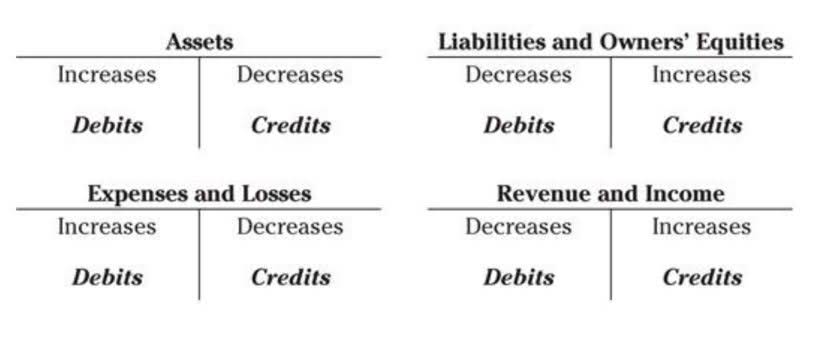Ultimate Guide to Startup Accounting for 2025

Following proven accounting advice for startups can help you stay on top of your finances without breaking a sweat. Plus, remote accountants or outsourced firms have the tools and expertise to streamline your processes and keep things running smoothly. So, while in-house sounds appealing, outsourcing might be the best way to keep your startup’s finances in check without stretching your resources too thin. Alright, now that your foundation is set, it’s time to start tracking your actual numbers. To track your expenses and income, make it a habit to record every transaction, no matter how small.
Getting Started with Startup Accounting

For example, you may be responsible for paying sales and use taxes, and if you don’t, you could face penalties from the IRS. On the other hand, being familiar with small business taxes can also help QuickBooks you take advantage of certain tax credits and deductions, which can help save you money. Opening a bank account for your startup is fairly simple and takes just a few steps to set up. To begin, you’ll need to figure out which banking institution you’d like to open an account with. For some business owners, convenience is key, so you could consider opening your business account with the same bank you use for your personal account—most banks offer both types of accounts.
- The best way to successfully plan financially and allocate resources is by using financial forecasting along with strong startup financial management.
- These principles of accounting not only ensure the completeness of your accountant’s work but are also expected by funders who review your books.
- This proactive approach sets the stage for long-term financial health and sustainable growth.
- The common thread among all funding rounds is that the business needs money to reach its next stage of growth.
- From the Balance Sheet, you can assess your company’s liquidity and stability.
- Look for a firm with experience working with startups in your industry.
- They use it to create better products, identify ideal customers, and prove the overall value of their efforts.
Long-term Financial Planning
Let’s break down the common pricing structures and weigh the value they offer. Keep detailed records to support tax deductions and credits, ensuring compliance with local tax laws. Don’t let overdue invoices hold your business back—take action today and stay on top of your financial responsibilities.
Managing Cash Flow
In some businesses, the bookkeeper sometimes also acts as an accountant. However, your mileage may vary with this approach, as most people who are hired for bookkeeping positions do not have the qualifications to serve as accountants. A CFO, or chief financial officer, is an executive-level position in charge of financial strategy. Throughout this article, we’ve said that your accountant can give you advice on many things.
- Here are 10 GAAP core standards that are compulsory to practice in accounting for startups.
- They also grow alongside your business, so you won’t have to swap out software as you expand.
- Close the books 4x faster, collect over 95% of receipts on time, and get 100% visibility over company spending.
- A simple spreadsheet might work initially, but as your startup grows, you’ll need more robust tools.
- Also, this guide is related to our articles on understanding retained earnings, cash vs. accrual accounting, and understanding gross vs. net profit.
- C-Level executives or managers will have a different level of pre-approved spend from other staff.
Why Is Accounting Crucial for a Startup’s Success?

This includes using reliable accounting software, categorizing transactions accurately, and staying compliant with tax regulations. A strong system of bookkeeping for startups can help them thrive by enabling better financial planning and minimizing risks. Starting a new business comes Remote Bookkeeping with a myriad of challenges, and proper accounting is crucial for the success of any startup. Entrepreneurs must prioritize setting up a robust accounting system from the outset to ensure financial stability and compliance. This involves selecting the right accounting software, understanding basic financial statements, and maintaining accurate records.

While you might not have much financial activity early on, you can use their guidance to make sound financial decisions for your startup. The importance bookkeeping for startups of in-house or outsourced professional accounting was also highlighted. Experienced tech startup accountants can provide invaluable expertise and efficiency, enabling you to focus on your core business activities. Lastly, we examined how to budget for accounting services and employ cost-saving strategies to make these services affordable without sacrificing quality. In summary, leveraging the expertise of professional tech startup accountants’ expertise can ensure regulatory compliance and provide invaluable strategic insights for business growth.

Popular Accounting Software for Startups
It’s common for small business owners to overpay both federal and state taxes because they don’t understand the tax codes and which tax credits and deductions they may qualify for. Starting a business requires a viable product or service and an initial investment of both time and money. It also requires financial oversight in the form of accurate accounting. Many startup business owners attempt to manage the accounting for their business even if they lack experience. On the other hand, TrulySmall Accounting is a simpler option for startups or freelancers who want to manage their basic finances with minimal effort. It automatically tracks income and expenses and generates simple reports to help you stay on top of your finances.

One of the first steps in establishing a startup is figuring out what business structure you’re going to use. This decision will determine how much taxes you’ll pay, your financial liabilities, and more. The owner’s equity is usually used by huge corporations to make decisions on dividend disbursements, company evaluations, and so on. Just like a doctor treats a patient’s illness based on certain rules, an accountant follows standards when creating financial statements as well. In the table below, you’ll find the majority of accounts used by businesses (with their respective types), that might come in handy when doing accounting for your startup. Highlighted in blue, are the 8 most necessary accounts every business needs.

Cevapla
Want to join the discussion?Feel free to contribute!